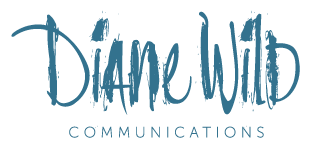Have you ever felt like an outsider when browsing an organization’s website or reading their marketing materials? I don’t mean that you don’t work there and aren’t a client yet. I mean their About page, for example, has you struggling to understand what they’re all about. Or their news release about a product leaves you with questions about what the product does.
We never mean to leave our readers in the dark, but a lot of business writing is created by people who are either too close to the topic (with unconscious assumptions about what is “general knowledge”), or not close enough (trusting an expert to clearly explain a concept in a way our audiences can understand, when we haven’t grasped it fully).
Here’s a few tips to get to the just right.
Find a who
My favourite trick is to consider a specific individual who could be a stand-in for a particular type of reader and write literally with that one person in mind. Not just “the general public,” but my mother or my hairdresser. Not just “ideal client,” but that LinkedIn contact I went to school with who could be, but isn’t yet, one. What concepts should I explain, what jargon should I avoid, what do they need to know given the lack of context they currently have of the organization I’m writing for?
Reader testing
A helpful next step is to find someone who isn’t familiar with your organization – the person you had in mind above would be perfect — to read over your work as part of a user testing process. Ask them specific questions to gauge their understanding: “Could you explain the service offered?” or “What would you say ‘concurrent’ disorders means?”, not “Did you understand everything?” People may not know what they misunderstood, and some may be reluctant to say outright that they aren’t sure.
Having this kind of user testing for your public-facing writing is your best friend when it comes to making your own unconscious assumptions … conscious.
Find the why
You know you need that About page, or that marketing email, but … why? And no matter what your answer is or how obvious it seems, flip it around and think of the why for your reader. You might want to sell something, or talk about your organization’s accomplishments, but what need or problem does your reader have that you can solve? Why would they be clicking on your About page? Probably to find out … about the company. I’m amazed how many websites assume I already know what the organization does, and they don’t — or can’t — explain it clearly.
NMA (No More Abbreviations)
Even if you generally refer to My Fabulous Company as MFC internally, curb that habit. Style guides will tell you it’s ok as long as you spell it out on first reference, but unless you work for a place better or equally known by an initialism or abbreviation– think RCMP or AOL – avoid avoid avoid it in all instances for a public audience. Otherwise, not only will your Google juice suffer, your audience won’t retain your actual name. If you want to become known widely by that abbreviation — think Kentucky Fried Chicken morphing to KFC, or Bank of Montreal to BMO — make sure you have the marketing bucks to support a branding change.
In fact, it’s a good idea to spell out all uncommon abbreviations unless it’s genuinely too cumbersome not to. It’s difficult enough to rise in search engine rankings; don’t hamstring yourself.
Grill your experts
When working for a renewable energy company, I had to interview an electrical engineer in order to properly describe a product in the marketing materials. I started by asking him to explain as if I was seven years old. When he launched into an explanation that involved charts and graphs and invisible numbers, I interrupted: “OK, now explain it like I’m five years old.”
He hadn’t meant to talk over my head — this was all common knowledge to him — and he adjusted with a laugh. My other way of priming an expert to speak at a general public level is to ask them how they would describe the concept to their neighbour. (Of course, if they’re literal-minded enough and their neighbour is a Nobel Prize winner, you might have to try again.)
You don’t need to get an electrical engineering degree, or be a licensed doctor, or be any kind of content expert yourself, but it’s crucial you grasp the concepts you’re writing about or your writing can’t be clear enough for your audience. Check your ego outside and don’t let an expert get away with talking over your head — it doesn’t make you stupid to ask them to explain it in simpler terms, it makes you a good communicator. Quiz that expert until you get it, so you can help your reader get it too.
Any other tips to share about getting close enough to your content to write effectively? Share with us in the comments.


